Adoption isn’t always an easy road to begin with, but when you’re a same-sex couple, the reactions you get can range from heartwarming to downright weird.
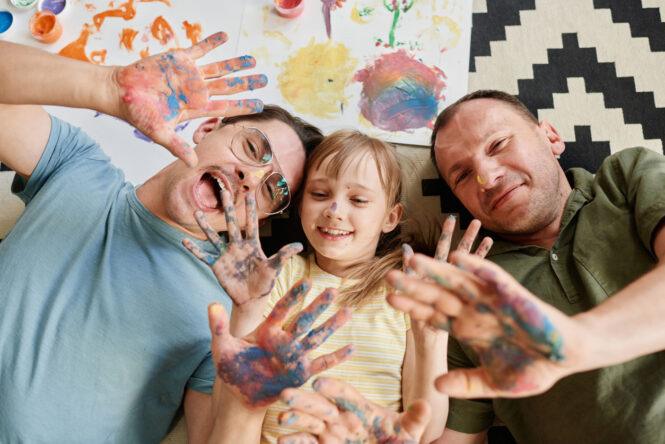
Some people get it; some people don’t. Then there are those who don’t know what to do with themselves at all. While society’s definitely come a long way, it’s clear that plenty of people still have a lot of catching up to do. Here’s a look at the kinds of responses same-sex parents often get, and why they still matter.
1. The ones who genuinely light up

Some people will see you with your child and their whole face changes. There’s no awkwardness, and no questions—they just beam. They might say something kind, or they might not say anything at all, but the energy is nothing but warm and normal.
It can be a breath of fresh air when you don’t feel like a walking social statement. These people don’t treat your family like a curiosity. Instead, they just see a happy kid with loving parents and carry on like it’s the most natural thing in the world.
2. The well-meaning but awkward ones
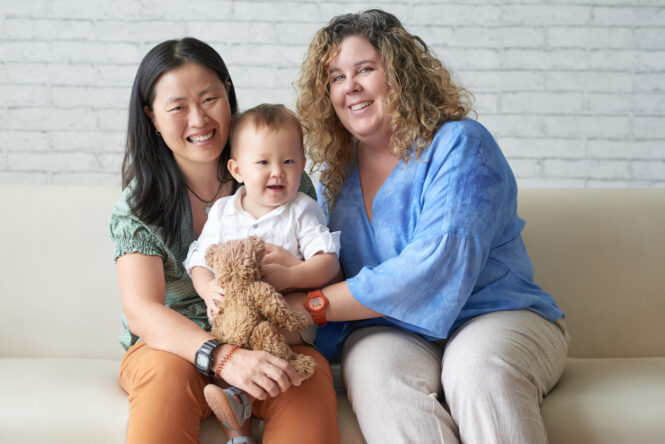
You’ll get the ones who are clearly trying to be supportive but end up asking clunky questions like, “So who’s the real mum?” or saying things like, “It’s so great what you’re doing.” You know they mean well, but it’s still a bit cringey. Most of the time, they’re just not used to seeing families like yours, so they fumble. It’s not hostile, just uninformed. And while it gets tiring explaining things, you can often tell when someone’s open to getting it right next time.
3. The people who get weirdly inquisitive
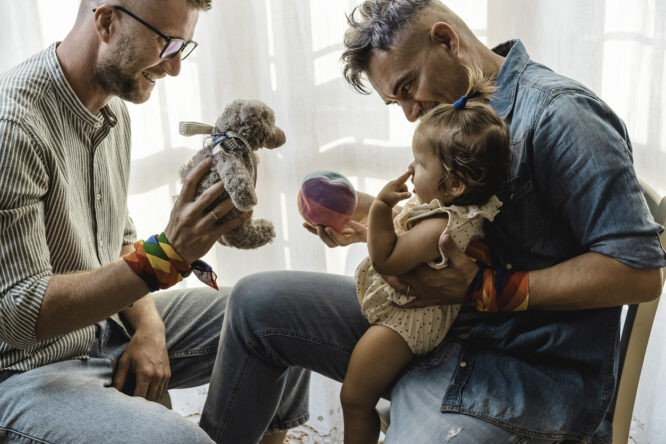
Then you’ve got the ones who treat you like you’re some kind of human interest story. They want all the details: how the adoption worked, who’s biologically connected, what the child calls each of you. None of it is really their business. It’s like they forget they’re talking to real people, not a case study. You end up having to draw lines mid-conversation, just to protect your kid from being reduced to someone else’s curiosity.
4. The ones who go completely cold
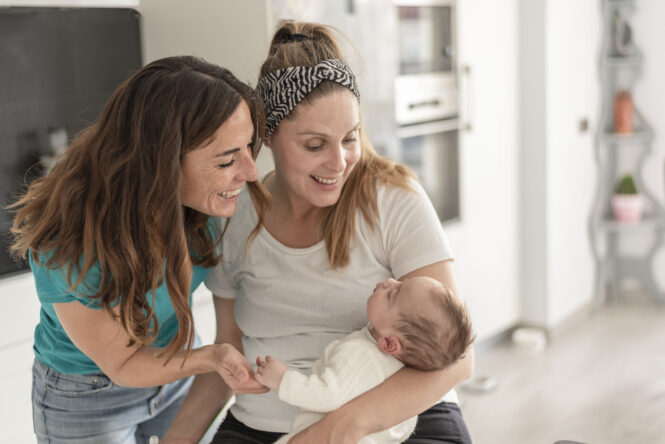
Some people won’t say anything outright, but the change in their vibe says enough. They’ll go quiet, won’t ask follow-up questions, and suddenly seem very interested in the floor. They’re not actively rude, but they’re not okay with it either. This kind of reaction can hurt, especially when it comes from people you thought might be more open. It’s that subtle pulling away that makes you feel like you’re being judged for something as basic as having a family.
5. The microaggressions dressed as praise

“He seems so well-adjusted!” sounds like a compliment, but it’s often laced with surprise. Like they expected your kid to be confused or struggling and are now baffled that everything looks… normal. It’s not exactly hateful, but it’s loaded. When you hear enough of those, it starts to wear you down. You don’t want to constantly feel like you’re being graded just for being functional. You’re not trying to impress anyone, for goodness’ sake. You’re just raising a kid like everyone else.
6. The ones who assume you’re the babysitter

Gay dads especially get this. You’re out with your child and someone assumes you’re just watching them for the day. It’s like their brain short-circuits at the idea of two men being full-time parents by choice. It’s usually not said with malice, but it’s a clear sign that some people’s mental picture of “real family” is still stuck in the past. The correction gets old fast when it happens more than you’d expect.
7. The family members who do the bare minimum
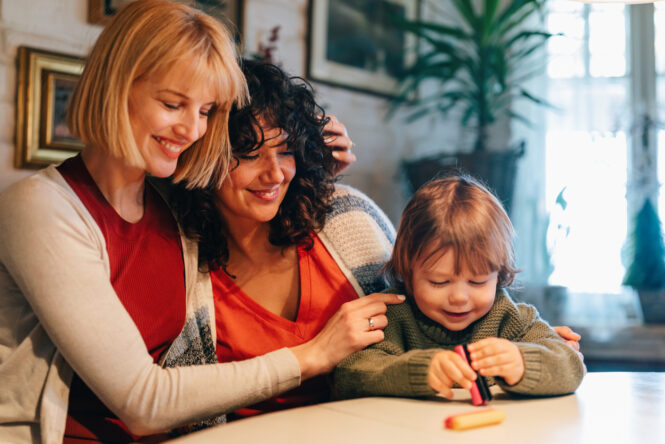
Sometimes your own relatives are the ones who hold back. They show up to birthdays, smile for the photos, but you can tell they’re never fully on board. They might avoid asking how things are going or never really engage with your child.
This halfway kind of support can be harder than open disagreement. You’re constantly stuck in this grey area of trying to be accepted without ever really being embraced. It’s exhausting, and it adds a layer of emotional labour that straight parents don’t usually have to carry.
8. The kids who honestly don’t care
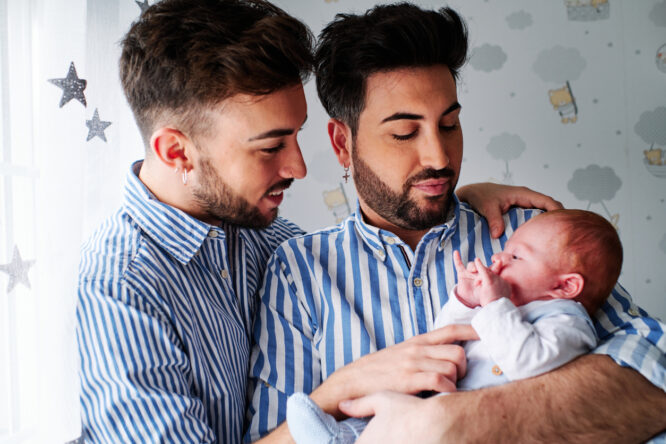
One of the best parts? Most kids couldn’t care less what kind of parents you have. As long as someone’s there to play, hug, feed them, and laugh at their terrible jokes, they’re good. Two mums? Two dads? No big deal. This kind of acceptance is what gives a lot of same-sex parents hope. Kids often reflect what they’ve been taught, and when they’re raised without judgment, they don’t bat an eye at families that look different from their own.
9. The professionals still catching up
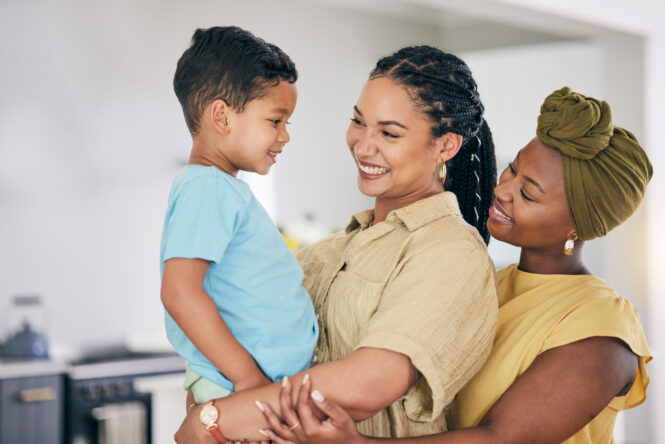
School forms, medical documents, admin systems—they’re often built around mum and dad, with very little room for anything else. You end up having to cross things out, re-explain, or remind people that no, your child doesn’t have a “mother’s name” to list. Some staff handle it well and make the changes without fuss. Others freeze or fumble, making you feel like you’re being difficult just for existing. It’s not personal, but it does show how far behind some systems still are.
10. The religious friends who sidestep the topic
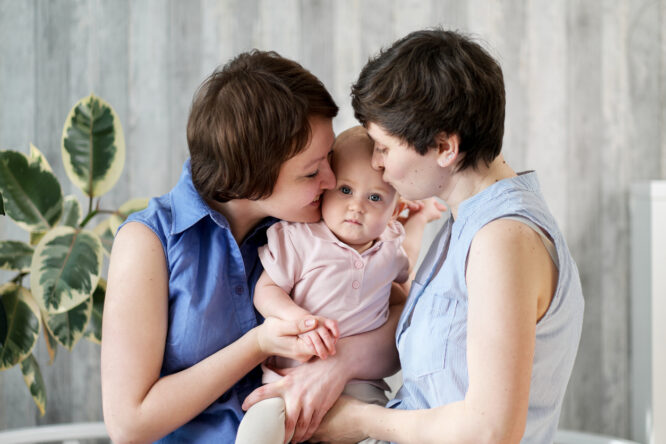
They might not say anything negative, but the silence speaks volumes. They avoid questions about your child, change the subject quickly, or act weirdly neutral when other people show support. It’s not open rejection, but it’s not support either. This kind of middle-ground discomfort can feel just as isolating. You start to wonder if they’re waiting for you to “come around” or just quietly disapproving from the sidelines. Either way, it’s not a great feeling.
11. The people who show up properly

Then there are the people who just get it. No hesitation, no weird energy, no loaded questions. They talk to your kid like they would any other, refer to you as the parents, and include your family without making it feel like a political statement. These are the friends and acquaintances who make things feel normal. You don’t have to filter yourself or stay alert for weird comments. You can just exist, and that kind of ease is everything.
12. The strangers who say something kind, just because
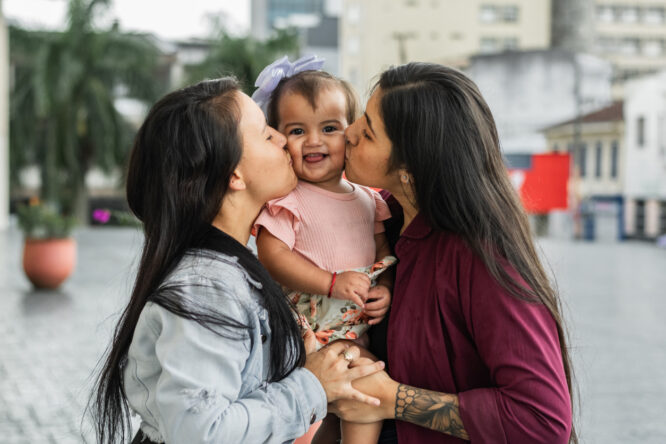
Every now and then, someone will say something that sticks with you. A stranger in the park might say, “Your kid looks so happy,” or “You two are doing an amazing job.” No agenda, just a moment of warmth that hits in all the right places. It reminds you that not everyone is watching you with suspicion. Some are genuinely happy to see families built on love, no matter what they look like. And those moments can cut through a hundred awkward ones.
13. The hard questions your child might face
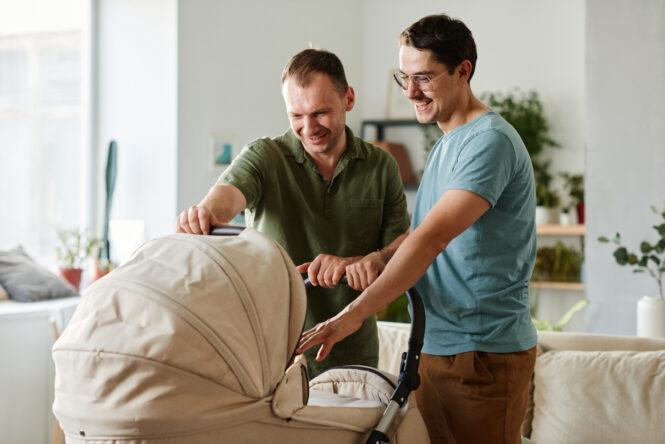
Even if you’ve created a solid, loving home, the world around your child might not always understand it. They might get asked weird questions at school, or overhear someone saying something off. It’s not always in your control, but it lands.
Decent parents, same-sex or not, prepare their kids for that. They help them find the words, give them safe space to talk, and remind them that their family is valid even when other people don’t act like it. That kind of steady support is what sticks with a child long after the questions stop.



